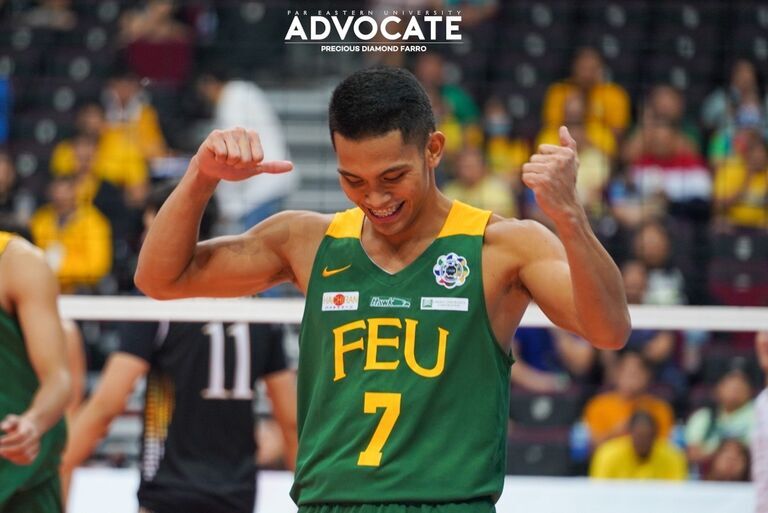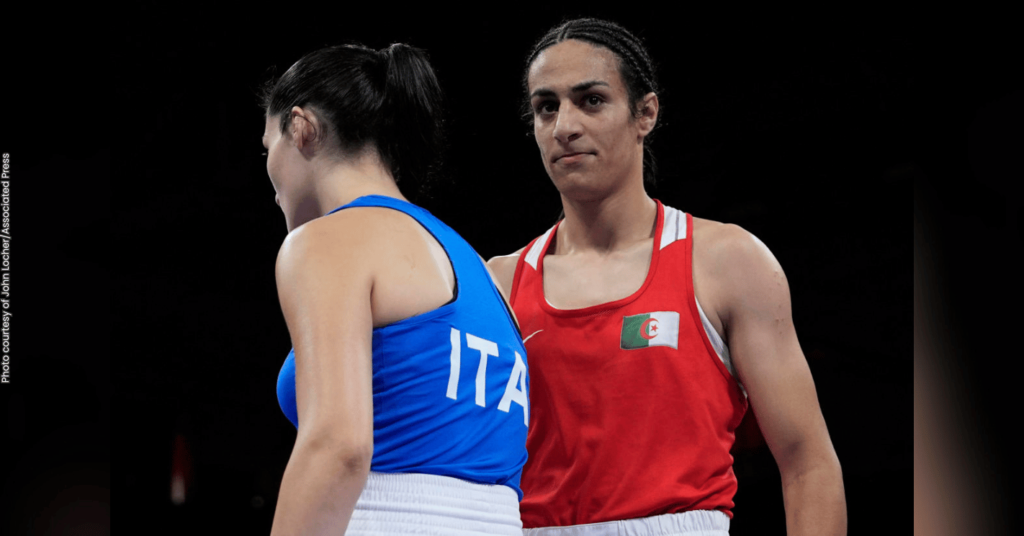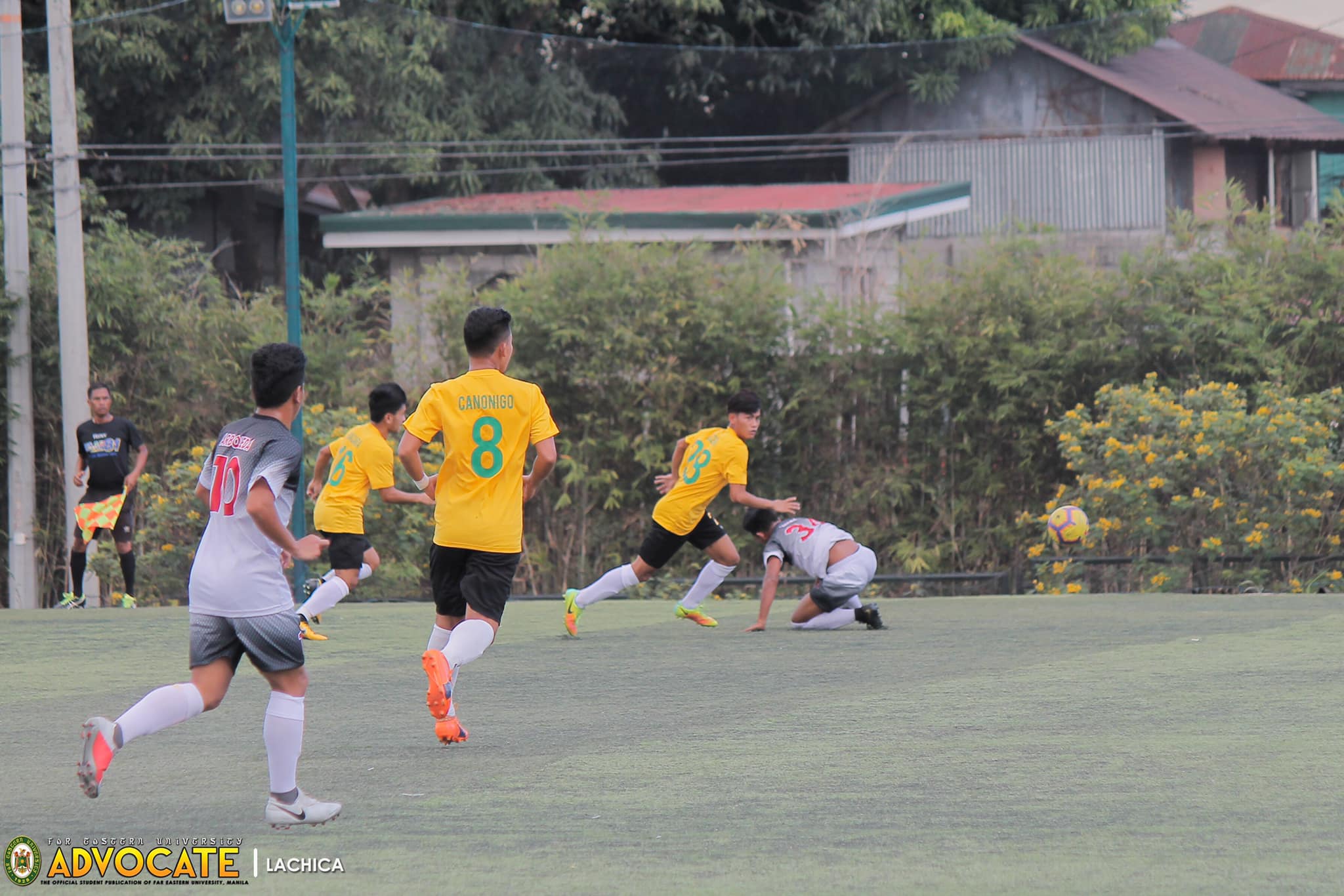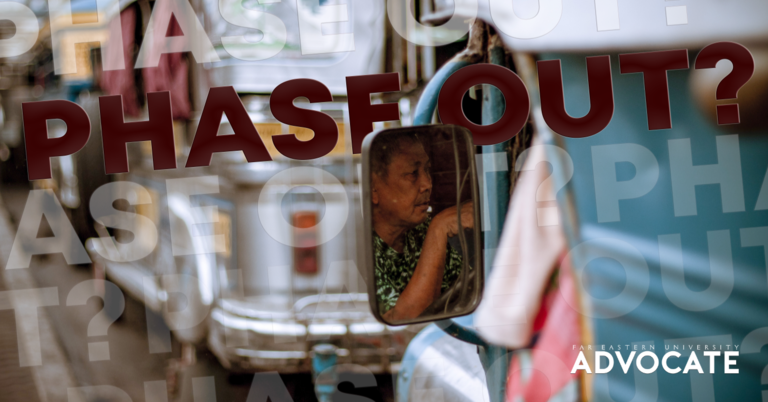
Jude Garcia leads FEU as Tamaraws tame Tigers in five-set match
- March 08, 2020 18:00
FEU Advocate
August 03, 2024 20:28

Ace
By Angel Joyce C. Basa, Senior Sports Writer
The power of media to be quickly hostile on one’s gender is something to look out for, especially with the unwarranted transphobia spreading like a disease. Believe it or not, even an Olympian has no escape to such defamation. And I, for one, am surprised at how quick people are to jump on the hate train.
In most recent news, Algerian Olympic boxer Imane Khelif received an immense amount of discriminatory remarks after beating Italian delegate Angela Carini in the women’s 66 kg preliminary boxing match in the 2024 Summer Olympics in Paris, France last August 1.
The match ended in only 46 seconds after the Italian boxer abandoned the fight, bloodied.
This led to the resurfacing of Khelif’s prior news of failing the gender eligibility test in the 2023 World Boxing Championship. She was found to have a set of XY chromosomes, indicating a disorder of sex development which caused her disqualification from the competition last year.
Adding fuel to the already burning topic, Carini’s claim of never being hit that hard before was taken against the former boxer, echoing it as an unfair treatment between a real woman and Khelif.
The general public was quick to stress that a ‘biological man’ should have no place in the women’s category of any sporting competition. However, if she was disqualified from the world championships, how come she is allowed in the Olympics?
A quick answer: she is a woman.
Unbeknownst to many, the Algerian Olympiad is a biological female. No matter if there is a presence of XY chromosomes or a higher amount of testosterone in her body, Khelif was born a woman and identifies as a woman.
The International Olympic Committee (IOC) have also stated their stand to defend the boxer against malicious comments regarding her gender. Previously, the International Boxing Association decided on the result of Khelif’s gender eligibility test, which the IOC recognized as “sudden and unreasonable.”
However, it seems to me that people will take any opportunity to express transphobic remarks on the internet. With lack of proper judgement, they have quickly casted out the ciswoman boxer and transgender people from belonging in the Olympics.
Not only that, but they have also boxed the capabilities of a woman to femininity and softness because “only men” can be strong enough to hit hard. They have completely disregarded the fact that women are as capable as men, because we can only be too strong.
To say that I am disappointed may be an exaggeration, because this is not the first time that I have witnessed people trying to measure the femaleness of an athlete.
Take Filipina volleyball player Trisha Tubu as an example. Ever since her University Athletic Association of the Philippines debut in 2023 under Adamson University, Tubu has been criticized for her looks not fitting that of a typical female athlete.
Despite winning countless matches as player of the game and even bagging the Rookie of the Year award in Season 85, the question of her femaleness remained the talk of the town.
For years, women like Khelif and Tubu have proven themselves worthy of their standing in society and fields dominated by men. Yet time and time again, we are still interrogated despite proving everyone wrong.
In strength and looks, how should a woman be? This question rings in my head everytime I see posts of discrimination toward powerful women. It looks like people have forgotten that we, too, can hit hard like men, and Imane Khelif showcased our capability as women.
Many other women get targeted for these stereotypes with a lack of media literacy among the people on the internet. And if only we can research about sensitive issues before jumping on the hate train, this would not have escalated further. It’s 2024, Google is free.
(Photo courtesy of John Locher/Associated Press)









